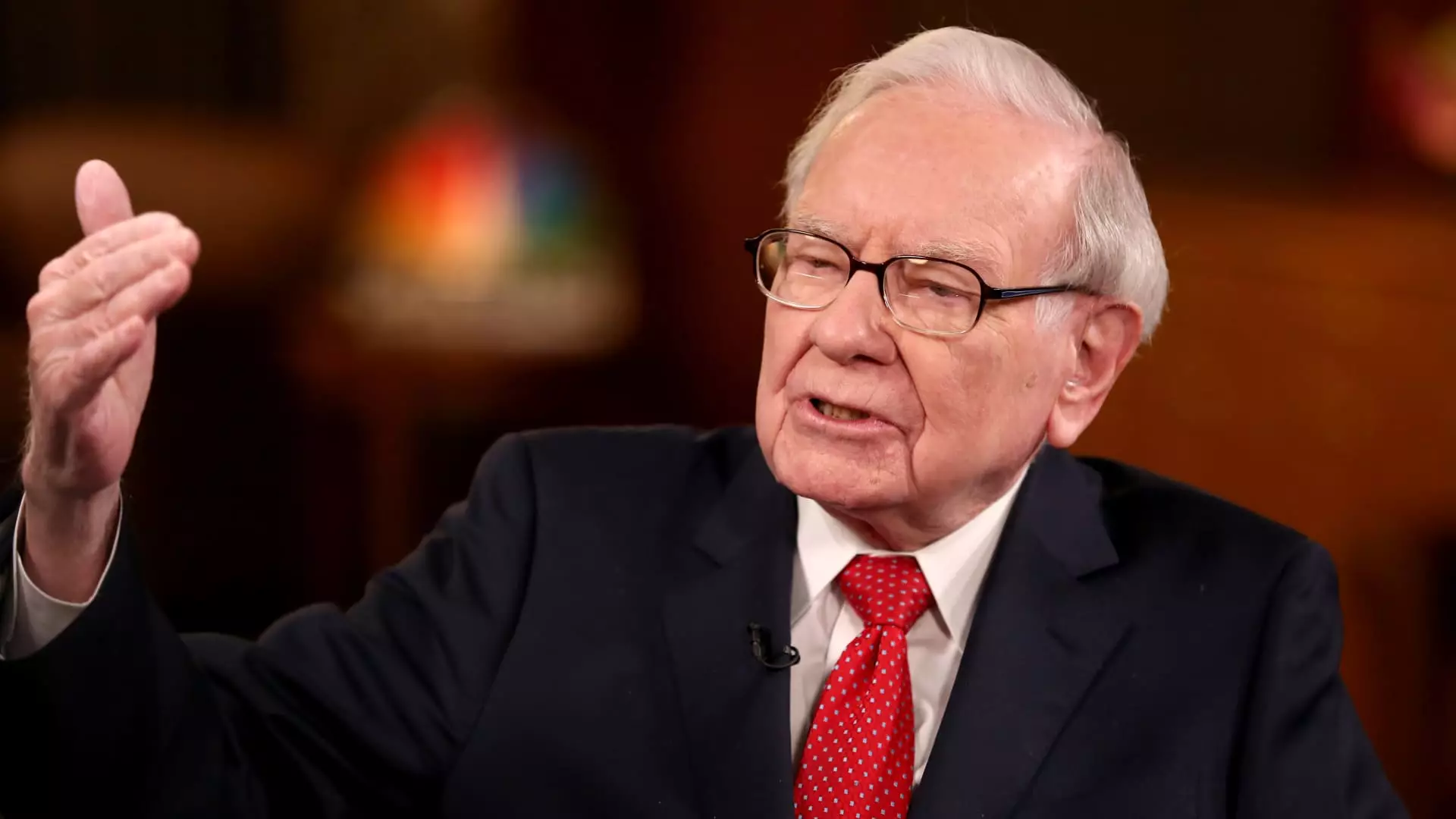In a shocking turn of events, the interplay between social media, political rhetoric, and economic reality has turned into an absurd circus. Recently, President Donald Trump shared a bizarre video on Truth Social, positing that he is intentionally crashing the stock market to manipulate interest rates. He linked this fictional narrative to none other than Warren Buffett, describing him as an unrelenting cheerleader for Trump’s supposed genius moves. This claim, of course, was promptly rejected by Buffett himself, illustrating how misinformation festers in today’s hyperactive social media landscape.
This incident is more than just a misinformation blip; it reflects a culture where the line between reality and falsehood is blurred beyond recognition. Buffett’s response was swift, coming from his powerhouse conglomerate, Berkshire Hathaway, which labeled the claims as false. In an age dominated by sensationalism and character attacks, it becomes imperative to question not just the accuracy of public statements but the motives behind them.
A Tangled Web of Social Media Influence
The origins of this misinformation trace back to a TikTok video that found its way to Trump’s audience, showcasing the viral nature of social media. It was a poor attempt to validate Trump’s economic decisions, rooted in the unfounded assertion that a deliberate market crash can serve as a tactical advantage. This narrative thrives on sensationalism and can easily mislead well-meaning individuals into believing in a twisted version of reality.
The thousands of shares the video accrued reveal a troubling tendency among some social media users: a proclivity to latch onto flashy narratives rather than truth. It disposes of critical thinking, replacing it instead with a misguided sense of loyalty towards a public figure. This reveals a rotten core within the information ecosystem—a culture that celebrates preferences over facts.
Warren Buffett: The Voice of Reason
But let’s pivot back to Buffett. Known for his long-term investment strategy and economic foresight, he has cemented his position as a leading voice in financial discourse. Following the false allegations, Buffett found himself in a precarious situation where, instead of focusing on his investment strategies, he has to continually debunk fabricated claims. He expressed his commitment to avoiding market commentary ahead of Berkshire’s annual meeting, a statement likely motivated by a desire to maintain focus amidst the noise.
Buffett’s stance against tariffs has been consistent over the years, labeling them as “an act of war,” and his skepticism toward protectionist measures has been both rational and prescient. He sees the global economy as an interwoven tapestry where trade barriers harm all. Here, he stands as a bulwark against the tide of isolationism. As we consider Trump’s policies, one must ask whether we truly value the free trade principles grounded in decades of economic understanding, or whether we are willing to gamble them for shallow political expediency.
Reality Check: Risks of Misinformation
While it’s easy to dismiss incidents like these as mere political antics, they are symptomatic of a greater issue—the erosion of trust in credible sources. The instantaneous sharing of misleading information has the capacity to create undue panic and confusion among the masses. In a world increasingly dominated by narrative-based politics, the primary casualty is often the truth.
Buffett’s predicament exemplifies how seasoned professionals can become unwitting players in a game they’ve chosen not to join. His history supports both integrity and economic savvy, emphasizing a need for clarity and honesty—a refreshing antidote to the rampant misinformation plaguing today’s political climate.
Yet, can we expect integrity to rise amid an onslaught of fabrications? The speed with which misinformation circulates raises critical questions about our collective responsibility to seek out the facts, rather than passively absorbing the noise. As citizens, we must find ways to prioritize critical thinking and validation as tools for navigating the tempest of social media.
In a time when economic factors loom large in political discourse, we must take a firm stand against false narratives. The battle for truth begins with each of us committing to question, scrutinize, and ultimately demand maturity from our public leaders, even when they occupy the highest offices in the nation.

